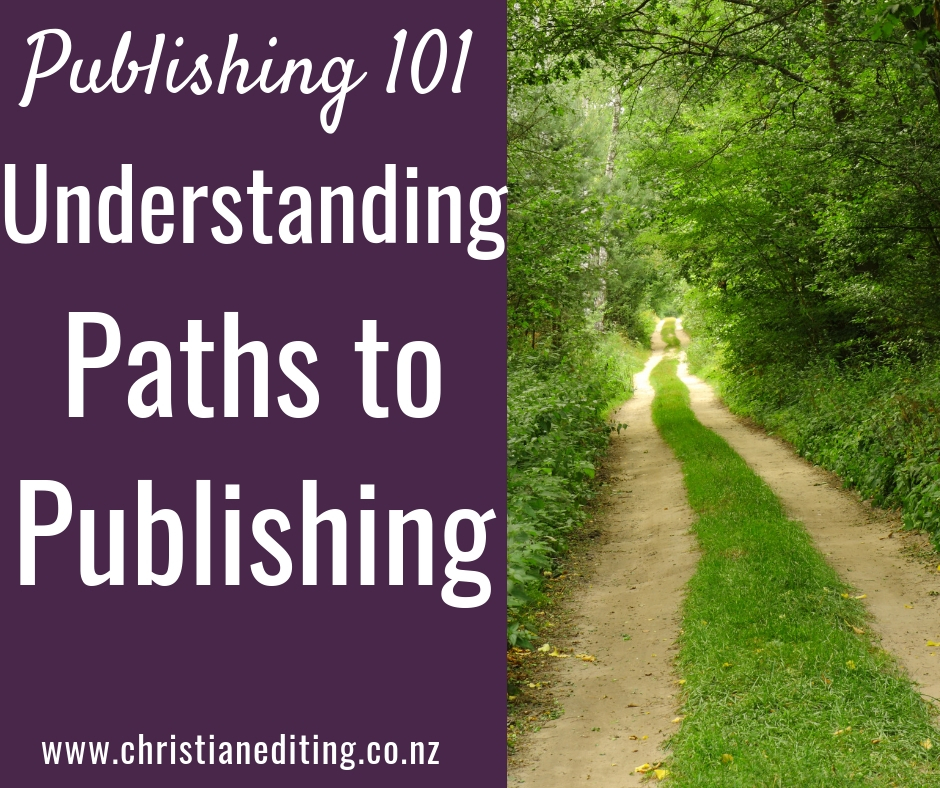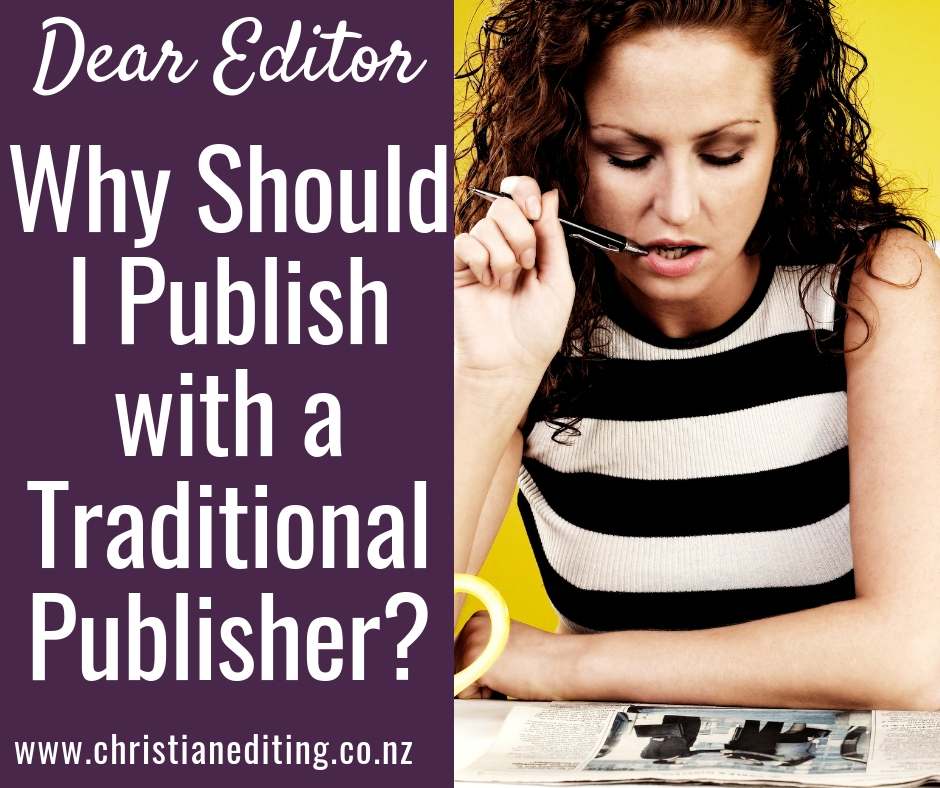I was recently cruising one of the Facebook writing groups when an interesting question came up:
Why should I publish with a small traditional publisher?
I’ve partly covered this before, in Dear Editor | Should I Publish with a Small Press? But one group member made some good points about what a good traditional publisher will do:
- Pay an advance to the author.
- Employ editors with a track history of acquiring and publishing bestselling titles.
- Employ competent line editors, copyeditors, and proofreaders.
- Employ cover designers and formatters with experience publishing bestselling titles.
- Employ an in-house sales team directly selling to thousands of booksellers through dozens of national and international channels.
If the traditional publisher doesn’t do most or all of these things, then what is the benefit to the author? The author grants the publisher the exclusive right to publish and distribute their book in exchange for the publisher taking most of any future profit, and paying lower royalty rates than the author could earn from self-publishing.
Ironically, said group member manages a vanity press which does not pay advances or employ editors, and distributes books though IngramSpark and Baker & Taylor. Pot, meet kettle.
Having said that, I agree with the comments.
I have a list of over 170 publishers of Christian fiction. There are a small number who meet all the criteria of a traditional publisher: they have a team of editors and designers who have worked on bestselling and award-winning books, and they have an extensive sales team actively selling books into retail chains.
Major traditional publishers pay advances, and royalties (if the book earns out the advance). Typical royalties are 15% of the net price (i.e. the price the publisher was paid) per paper book sale, and a little more for ebooks.
But these publishers don’t take submissions directly from authors.
They choose to work exclusively with a small number of literary agents specialising in the Christian market. Getting a literary agent is hard, and getting one of the limited number of publishing spots with a major traditional publisher is even harder.
My list also has a large number of small traditional publishers.
A couple of these are owned by authors who have been published by one or more of the major traditional publishers, and the quality of the books they publish reflects this professionalism. They are well edited and have covers that look like covers from the major traditional publishers.
Small traditional publishers don’t usually pay advances but do pay above-market royalties (I’ve heard figures of 25% of net on paper sales, and 50% on ebook sales).
The rest of the small publishers on my list mean well, but their books are substandard.
The writing and editing isn’t great (I’ve read better first drafts). Their covers are not consistent with current genre trends. As a result, the books rarely reach any significant level of sales.
What these small publishers don’t have is the sales channels. They don’t have national-level relationships with Barnes & Noble or Walmart or Target … or even Amazon. They might have relationships with the owners of local bookstores (Christian or not), but that relationship will sell tens of books, not hundreds or thousands.
Their main distribution platform is going to be Amazon and the other ebook stores, and IngramSpark (for getting paper books stocked at Barnes & Noble online). They’ll also get listings in the online catalogues.
And that’s exactly the same distribution as a self-published author can get for themselves for the price of the IngramSpark upload fee (i.e. around $50, and free for members of the Alliance of Independent Authors).
Coincidentally, that’s exactly the same distribution as many of the “self-publishing” companies offer … except they charge hundreds or thousands of dollars for the privilege.
(Read more about vanity publishing here.)
And that’s why I believe authors have two choices:
1. Get their writing and platform to a standard where they can attract the attention of a top literary agent who has solid relationships with the major traditional publishers.
(Read more about how to find a Christian literary agent here.)
2. Self-publish.
And when I say “self-publish” I don’t mean spending hundreds or thousands of dollars with a “self-publishing company” (or hybrid publisher, or partnership publisher, or any of the dozens of other names I’ve seen them call themselves). Unfortunately, these type of companies make up the majority of the publishers on my list.
When I say “self-publish”, this is what I mean:
- Write the book.
- Work with critique partners to refine the plot and character arcs (or hire me for a manuscript assessment).
- Work with beta readers to further revise and refine the story.
- Work with an editor to polish the story. You might need a couple of editors e.g. a developmental editor and a copyeditor.
- Find a cover designer with a proven track record in your genre,
- Format your book for publication (e.g. buy Vellum or format free through Draft2Digital).
- Create accounts on the major online bookstores and upload their book for sale (free everywhere except IngramSpark, which is around $50 unless you have a discount code).
- Register copyright with the US Copyright Office ($35).
In return, self-published authors get royalties of 70% for (most) ebooks priced between $2.99 and $9.99, and 35% on other ebook sales. Royalties on paper books will depend on the cost of production and the sales price. However, the author doesn’t pay anything up front and isn’t required to purchase any copies (although they can purchase at a discount).
Authors also need to create an author platform, but every author needs that—the major traditional publishers are unlikely to consider an author who doesn’t at least have a professional-looking website and social media profiles.
(As an aside, I recently had the owner of a small press (not one of the good ones) challenge me as to why I didn’t “recommend” her publisher. My answer is that I don’t recommend any product or service I haven’t got personal experience with – which means I don’t recommend any publisher.)
So why should I publish with a small traditional publisher?
The one reason I can think of for first-time authors to publish with a small press is that traditionally publishing through a small press grants them the right to enter some writing contests—some contests for published books require that self-published authors show evidence of $2,000 or $4,000 in sales before they can enter. However, I’ve judged some of these contests and can assure you that being “traditionally published” is no guarantee of quality.
Otherwise, I recommend authors do their homework and carefully consider their publishing options.
Are you published with a small press? What was your rationale for that decision?



